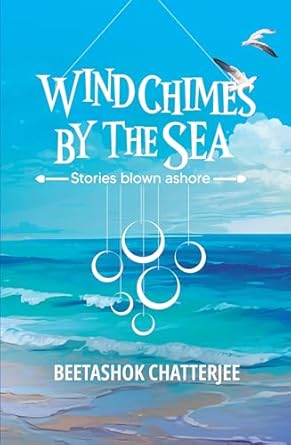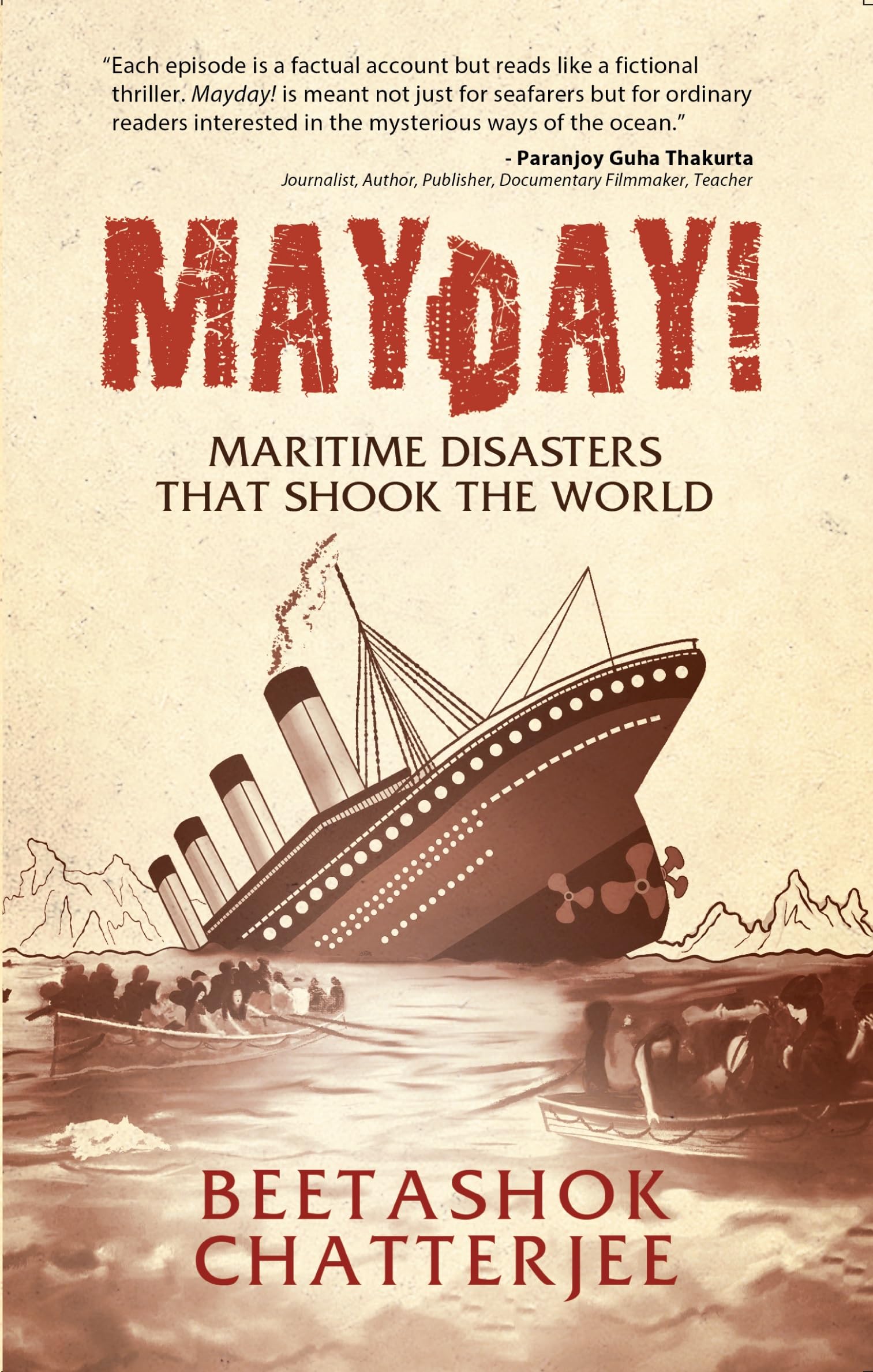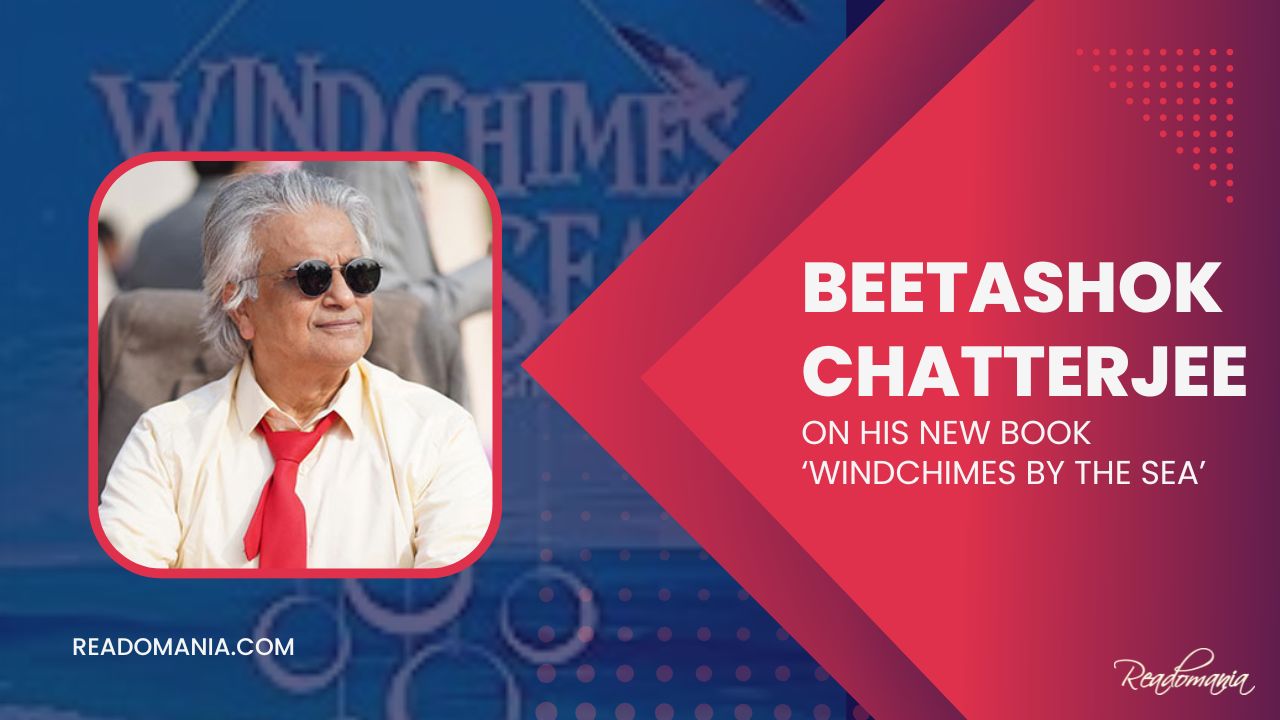Hi Beetashok, congratulations on the launch of Wind Chimes by the Sea!
Readomania : Before we begin discussing this book, tell us a bit about your writing journey.
Beetashok: I’ve always wanted to write. Right from my school days. But in those days one had to strive to be a doctor, lawyer, engineer or civil servant. So I put my dreams on hold and joined an Economics Hons course in Delhi University. But Fate had other plans for me. I got selected into the Merchant Navy in 1974 and, before realizing it, started sailing around the world as a Deck Cadet! And I loved it! With the passing years, I gradually got busy with Life and survival—worked hard to learn my job and studied hard to clear my promotion exams. Decades later, as a captain, fed up with writing reports, emails and memos at work (for some of which I had to indulge in a little creativity to save my own hide, if you get the drift!), I resumed creative writing. That was about ten years ago, beginning with poems and graduating to short stories. Rather late in life, I know. But then it’s never too late to follow one’s dreams. I firmly believe that.
Once I had a decent collection of short stories ready, I started contacting publishers with samples of my work, while continuing to write. Readomania came to my rescue like the proverbial knight in shining armor, and accepted my first collection of sea stories called Driftwood—stories washed ashore. Thereafter they have published every book of mine. This one is my 4th.




Readomania : Comparisons with Driftwood are inevitable. But these stories are longer and seem somehow more intense and technical. Would you agree?
Beetashok: Well…true, they are a bit longer. But these are different stories. I may have gone into greater detail about places and situations to give the reader a glimpse of sea life. The details I wanted to put into these stories for them to make sense to the reader just took up more words. That’s the best explanation I can give. Driftwood had more stories in a lesser number of pages. So did The People Tree. In fact the publisher had to leave two stories out of this one as I was exceeding the word count. It was not a conscious effort to make them longer. They just happened.
Readomania: You begin the book with a tale about the Indo-Pak 1971 war; how a merchant ship gets involved and unwittingly foils a devious plan by the Pakistani Navy. How difficult was the research?
Beetashok: Not difficult. It is based on a story idea given by my friend, whose contribution I have acknowledged in the book. There is enough information available about the 1971 war, Operation Trident, Operation Python and merchant shipping in the late 60s-early 70s. I didn’t really have to look far. In fact, filtering the vast amount of information gathered to use only what is relevant was the tricky part. The characters and the incident are fictitious, of course.
Readomania: You've based your second story on a real life event in New York in the 1970s, when a serial killer was on the loose. Did this really happen to Harjit Singh, the young protagonist?
Beetashok: Of course not! It’s all fiction. Of course, I have known several Harjits in my long career at sea—young, brash and full of life. But those two coincidental events of 1977 in New York—the blackout and the serial killer on the loose, which I came upon by chance—formed the basis of the story ‘In the Heat of the Night’. It occurred to me immediately that if a sailor was stranded in New York during that time that would make a great story. All I had to do was introduce ‘Dirty Harry’ Harjit and Vince.
Readomania: The third story of yours came as a surprise. It is set in the 16th century. It is a love story set amid a battle between two sailing ships! How did that come about?
Beetashok: For this one, I researched a lot about sailing ships, Hispaniola, European pirates, slave traders, Christopher Columbus etc. I tried to keep the sea battle as simple as I could by keeping the ships heading north or west or south and not in between, to allow the reader to grasp how the two ships interacted and how the sails were affected by the wind. I also blended a love story with it, giving it a slight twist at the end. I’m quite pleased with the way it turned out.
Readomania: That sad story about the shipwreck is based on a song. Tell us about it.
Beetashok: It’s a beautiful song. Hauntingly beautiful. The late Canadian folk singer Gordon Lightfoot has always been one of my favorite singer-songwriters ever since I first heard his music in the early 1970s. ‘Wreck of the Edmund Fitzgerald’ is one of his biggest hits, based on a real incident. He has written a lot of sea songs. It’s a pity no one has heard of him in India. The lyrics of this song, which I know by heart having listened to it so many times over the decades, formed the basis of my story. I decided to expand each verse into prose and went verse by verse to describe the anatomy of a tragic disaster.
Readomania: Then there's the story about a ship running aground in the deepest ocean in the world! Tell us it's not true.
Beetashok: It sounds unbelievable, but it did happen. To a ship in the company I was working for at that time. I was captain on another ship then, also trading in the Far East. The characters are all fictionalized, of course. But it was a deeply embarrassing incident which my company did not live down for many, many years. It gave the Merchant Navy and Indian officers a bad name.
Readomania: You've written one from the perspective of a woman, how she journeys halfway across the world alone with a baby to join a ship. And then I have to travel back home alone with the baby too! And of course the adventure she encounters. If you ask me, I think it was convincing enough. Is it so unsafe for a woman even in this day and age?
Beetashok: Even more so, I think. Don’t you read about sexual harassment and sexual offences daily in the news? It’s just getting worse, I think, and not just in India. That lady in my story showed a lot of pluck and presence of mind. I wrote it from her perspective. I hope it came out all right.
Readomania: The story about all the officers on board a ship going on a diet...that was quite amusing. I'm glad you inserted a humorous story to lighten the mood. Are seamen generally health conscious? Or are they like these characters who suddenly wake up when it's time to go home and they want to look their best?
Beetashok: Haha. I deliberately inserted a light hearted story for variety. Seamen, especially among the younger lot, are getting fitness conscious. Now most ships have gyms, and the youngsters are hitting the gym every evening after work. But our generation didn’t bother much. They only stared aghast at their flab when it was time to go home! And then I would diet feverishly for a week.
Readomania: There is a Covid story too, where you have described the horrors of being on a ship during that lockdown period. Was it really that bad for seafarers at the time?
Beetashok: It was. It was a very bad time for the crew worldwide. Treated like pariahs, abandoned by their employers, with no medical help on board…it was exactly as I’ve described it. Perhaps worse. But nobody cared at the time.
Readomania : You've traveled so extensively, Beetashok. There's a story about North Korea as well! Have you been there?
Beetashok: Yes, I have. Not many seamen get that chance. Having said that, I never ever want to go back there again. The story ‘Frozen’ is based on my personal experience. I wrote it in an epistolary format, just for variety.
Readomania: Your last story is so aptly titled 'All's Well that Ends Well.' The twist at the end was really unexpected. Without giving away any spoilers, talk us through it.
Beetashok: Again, a lot of it is based on personal experience. I took delivery of not one, but three brand new ships in Croatia. As a result, I spent a lot of time in the shipyard at Split and stayed in that town for months. It’s a pretty town. My descriptions of the port and town of Split are as I remember them. The characters are fictional. The story too. I particularly wanted to end the book with that one, and titled it aptly.
Readomania: I must mention the artwork in the book. Your daughter collaborated again with you after Mayday!?
Beetashok: Yes, she did. And I think she’s done a fabulous job. Mayday did not give her the scope to display her artwork—the amount of detail that she put into each and every image—in large size, but this one did. The images are lifelike here, and an integral part of the book. We have agreed to collaborate on my next project as well, squabbles and arguments notwithstanding.
Thank you for talking to us, Beetashok! All the best for your writing endeavours in the future!
All his books are available on Amazon. Click here.
 Beetashok Chatterjee was a ship's captain by profession. He joined the Merchant Navy at a young age and loved it, retiring only after having completed more than 45 years at sea.
Beetashok Chatterjee was a ship's captain by profession. He joined the Merchant Navy at a young age and loved it, retiring only after having completed more than 45 years at sea.
His first collection of short stories Driftwood—stories washed ashore surprised him with the favourable response it got and he decided that this is what he wanted to do for the rest of his life—write. His second volume of stories The People Tree—stories about us and them, had nothing to do with the sea, since he wanted to prove a point that he is versatile. His poems were published in an anthology Monochrome Verses and he has many more gathering rust in his laptop. He has contributed to a Covid anthology The Phoenix Rises—Lockdown Chronicles along with many eminent writers and poets. Mayday!, his foray into nonfiction, was #1 in its genre on the Amazon Hot New Releases for a month. He has been invited to Litfests at Pune and Nagpur as a panellist and interviewee.
This old sea dog has settled in Gurugram, near New Delhi. His hobbies include listening to Western music, reading fiction and watching cricket. He also loves good Hollywood and Bollywood movies. And chilled beer.


Comments